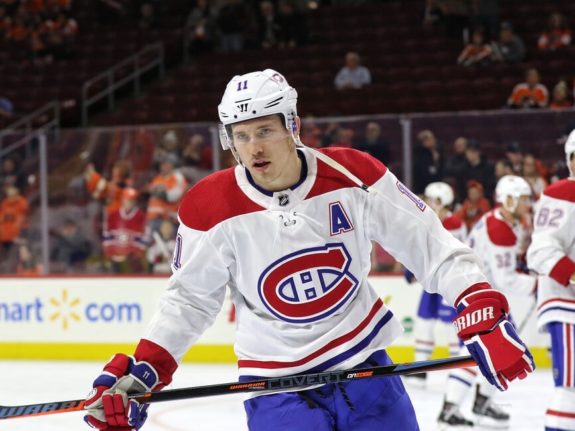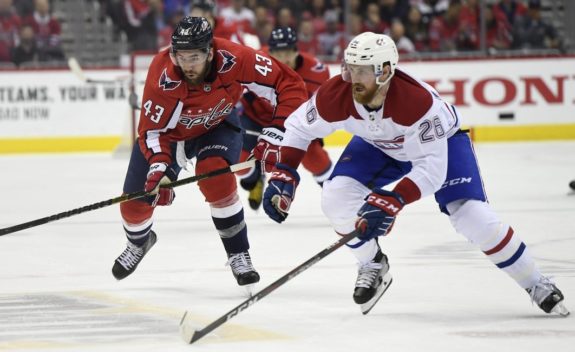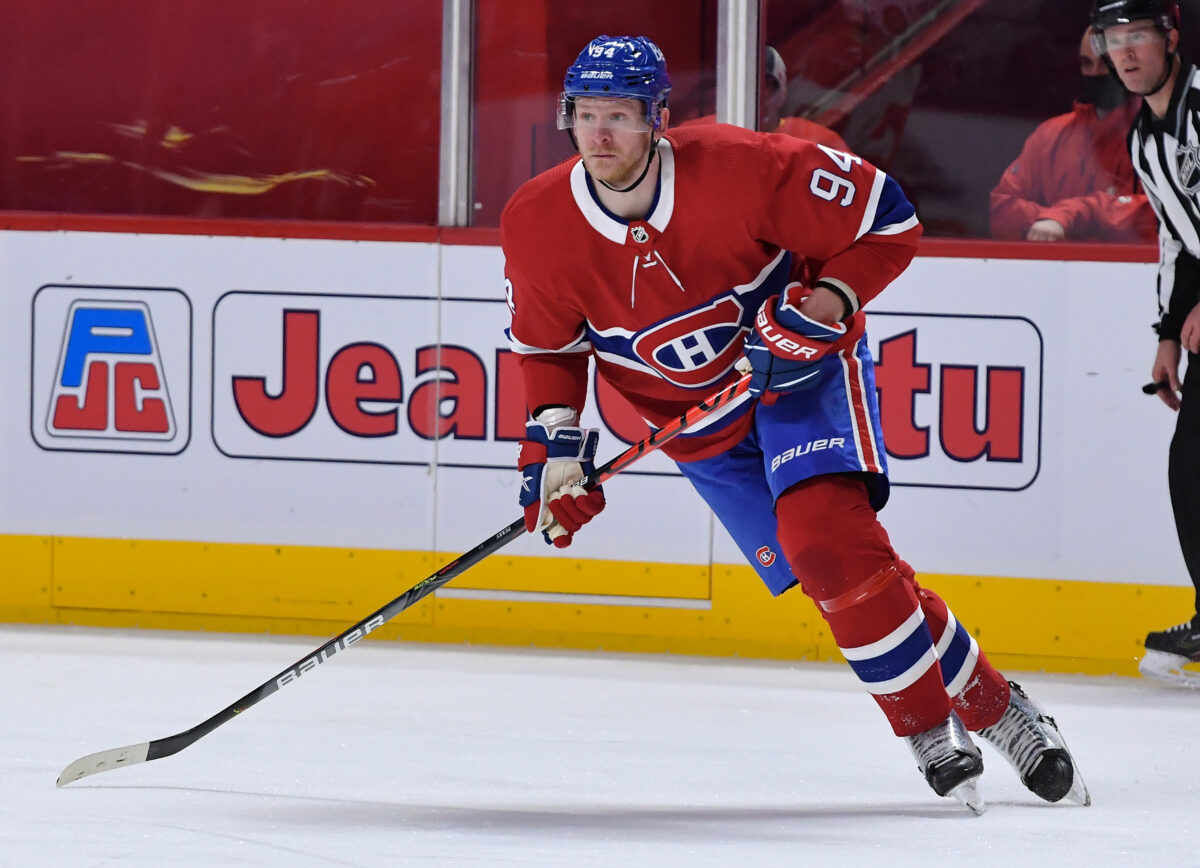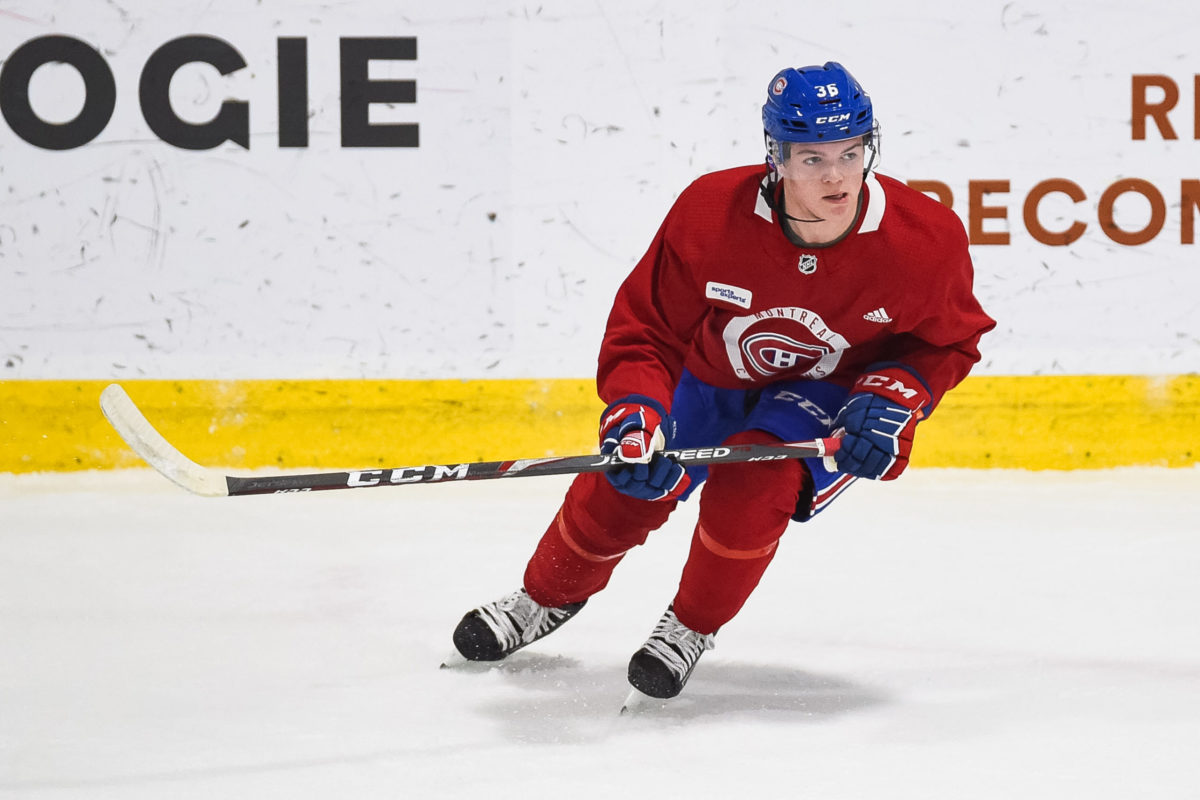The NHL trade deadline has come and gone. Montreal Canadiens general manager Marc Bergevin made some minor moves adding veteran depth to a team that was already fairly deep. He began by adding Eric Staal to help boost a skilled group of centers lacking in experience. He then added two depth defenders in Jon Merrill from the Detroit Red Wings, to add some defensive help to the third pairing, and Erik Gustafsson in the hopes he could help fill in when needed and add some help to their power play.
Now that there will be no help coming from outside the organization, the Canadiens must find a way to rediscover their identity as a team that is known for speed, relentless puck pursuit and hard work. So, what can fans expect when expecting the unexpected?
Preparation and Consistency
Consistency — this has been missing from this lineup for some time. The Habs, as built for this season, need to see better nightly performances from the entire roster. Bergevin addresses this in his post deadline press conference.
“Every player needs to play to their optimal potential, when they do, they’re a good team.”
– Marc Bergevin
It is unrealistic to expect each player to provide their top game every night, but it is realistic to expect they give their full measure in work ethic, much like heart-and-soul player Brendan Gallagher does every shift.

A player can’t control his nightly production, but he can control his personal work ethic and preparation, being prepared to attack as soon as the game begins. This hasn’t been seen consistently. Nick Suzuki addressed this:
“We need better starts.”
Nick Suzuki (post-game press conference vs. Calgary Flames, April 14, 2021)
It falls on interim head coach Dominique Ducharme to prepare his team, but in this case, it could be a shared responsibility. Team leadership in the room needs to hold each other responsible. There isn’t anything pointing to the fact that players aren’t, but there has also been no known team meetings. At this point of the season, with the playoffs in the balance, it is very likely that a team meeting will be announced, and this is likely one of the topics.
Defence
It has taken some time, but Ducharme has begun to place a mobile puck-mover on each defensive pairing. With a team that lacks a bona fide, top-pairing defender, providing this type of balance will be critical in the ability to roll all three pairings to eat up minutes.
Returning Jeff Petry to a pairing with Joel Edmundson brings back what has been one of the most effective possession pairings on the Canadiens’ blue line. It also allows for Brett Kulak to join Weber as a partner, leaving Alexander Romanov on the third pairing where he can still make some errors as he develops without it being exploited by top opposition.

This balance is also beneficial to start the transition game, which is the key offensive weapon for the Canadiens. You may ask, why mention offence in a defence segment? Well, if the puck is retrieved quickly and transitioned out of the zone, the defence has done it’s part as the offensive threat has been neutralized.
The wingers have been cheating too high in the defensive zone, conserving their efforts in hopes they can transition more quickly, but to make the system effective, they need to be in movement and move down lower in the zone, to be closer to the defenders. The system needs to use movement and speed to create outnumbered situations in small area play. By moving down quickly, wingers create a 3-on-2 in the corners or low in the zone, allowing for a short pass to move the puck out of danger and back up ice in transition where speed can be used to generate odd man rushes or at least a controlled zone. Small adjustments in positioning and effort can make a large difference to creating positive outcomes.
Offence
The Canadiens have had a reputation for being a speed team, and have added several players that fit that mold. That being said, there are several players who aren’t known for their speed, such as Staal, Merrill, and Corey Perry just to name a few. Lack of speed on a team that relies on that aspect of the game isn’t necessarily a handicap if the player fills a specific role and can be in the right place at the right time. While Merrill has yet to play, Perry has arguably been one of the largest surprises on this lineup. Staal, however, has disappointed. This has as much to do with his slower execution as it does his deployment by the coach. His use as a middle-six center with power play time has taken ice time away from more deserving players.

As mentioned above, the Canadiens’ speed is best used when in transition. Ducharme’s system requires all five players playing in a tight group. The offence starts with the transition game in the defensive zone. Once they can build to a controlled zone entry, the Habs forwards can then use their speed to help generate a cycle game or to dart in and out of traffic, creating confusion in front of the opposition’s net.
Montreal generates a lot of shots on net, which in turn can generate high danger goals for (HDGF), but they lack a finisher. Without a scoring threat, they must rely on generating traffic and shots from in close to score, which requires consistently high work ethic and a desire to sacrifice by taking the abuse it costs to be in those areas — a physical toll that causes players to play through bumps and bruises that could make them play a little slower some nights. This requires players to be a consistent presence knowing they may not be the ones rewarded with a point on some nights.
This lack of a scoring threat has brought fans to ask for the call-up of top prospect Cole Caufield. Scoring two game-winning goals in his first two professional games is a great start. Also, with the AHL’s Laval Rocket having only one game scheduled between the April 16 and April 30, he might get called up.

He won’t be the solution, however. It may be unwise to use one for the call-ups in the hopes that an unproven prospect can provide that added offensive spark the team has been missing for years. The danger is that rushing his progression now can cause it to be slowed or stalled, leaving him unprepared for when this franchise is ready to be a contender.
Meritocracy
Ducharme, like Claude Julien before him, relies on his veterans to lead the team on the ice; when a team reaches the end of a season, fighting for a playoff position, it is time to play a meritocracy — to rely on the players that are doing well at the moment, no matter how many games of NHL experience they happen to have. It has become time to use the team’s biggest weapon — depth — to allow a true meritocracy to flourish. It doesn’t matter if you’re the captain of the team or a taxi squad call-up, if you perform, you get more ice time.
As mentioned, Perry has been a bright spot in this lineup, being one of the most effective players on many nights. Despite his age and declining play, he more than makes up for that with his desire to compete and his work ethic. He has earned his added responsibilities.
As an example of a meritocracy, Shea Weber has had a difficult season, and has logged a lot of mileage on that 35-year-old frame. It’s normal as players age to slow down, but he seems mentally fatigued as well. His minutes need to be managed, even an occasional night off when the team plays four games in five nights can help. Giving him less responsibility and ice time could keep him from burning out and making mental errors that would cost the team points in the standings while keeping him as healthy as possible once into the playoffs.
Using the depth on the team also means giving players a night off at times. Call up a taxi squad member to play a bottom-line or bottom-pair role while the regular roster player takes a step back for a night. This could also allow players like Romanov to play a larger role for a short time to build confidence and further develop.

Canadiens fans need to temper their expectations. While this roster is vastly improved over the ones seen in the previous three seasons, it is still not a Stanley Cup contending squad. At the moment, it is a good team, with some talented youth that can make the playoffs and, if lucky, win a round or two. That being said, the players and coaching staff must find ways to maximize that potential and play to their strengths, because who knows, maybe they can hit a high streak as they did to start the season and give the fans something they haven’t seen in years: some playoff success.